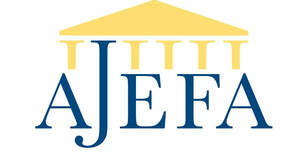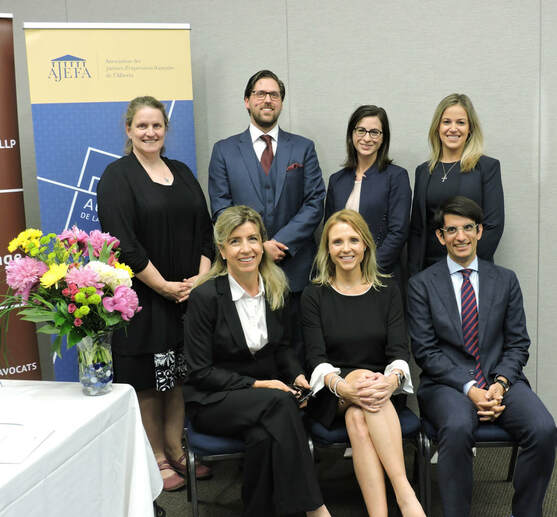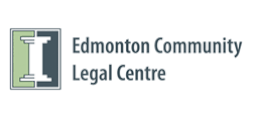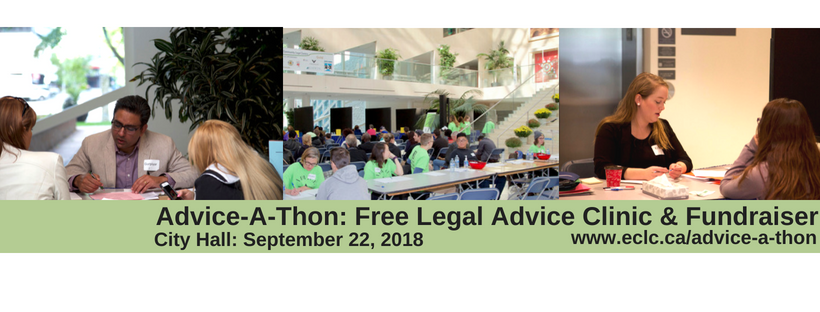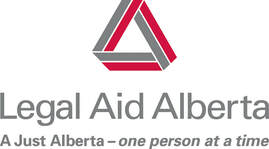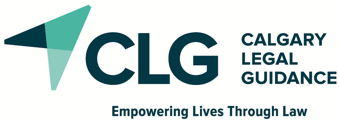|
The Association des juristes d'expression française de l'Alberta (AJEFA) is a non-profit organization that was created in 1990 to promote access to justice in French in Alberta. AJEFA has joined forces with the Edmonton Community Legal Centre (ECLC) to increase access to justice for French-speaking Edmontonians. AJEFA operates a bilingual legal information centre, but does not have the capacity to offer legal advice (www.infojuri.ca). However, AJEFA has members that are bilingual lawyers willing to volunteer to meet francophone clients at ECLC. AJEFA refers their clients and helps them fill out ECLC eligibility and intake forms. Although the paperwork is in English, clients and volunteers can communicate orally in French at the ECLC clinic. This provides new volunteers for ECLC and legal advice in French for clients. This shared service has only just started and availability is quite limited, however, over 12 clients have already benefitted from ECLC and AJEFA working together.
AJEFA Board 2018-19:
0 Comments
The Edmonton Community Legal Centre (ECLC) is a non-profit organization that has been providing legal assistance to individuals living with low income for the past 17 years. Volunteer lawyers provide free legal advice and staff lawyers provide free legal representation. ECLC’s services have gradually expanded over the years to meet community needs. From 2002 – 2008 the ECLC focused exclusively on civil law matters, expanding to include immigration in 2009, and family law in 2012. In 2011, the ECLC expanded to include administration of Grande Prairie Legal Guidance, a summary legal advice clinic with advice by Grande Prairie volunteer lawyers.
In 2019 the ECLC plans to expand again—to offer family law legal advice to low income residents of northern Alberta who do not live close enough to Edmonton to receive in-person advice at our evening and daytime clinics. Most of the advice will be offered using some form of technology—some of it as low tech as telephone—ranging to Skype, Facetime, and other forms of audio/video technology. ECLC is excited that they will be able to offer an opportunity to lawyers in various parts of Edmonton—and throughout northern Alberta—to participate as ECLC volunteer lawyers to provide access to justice and free family law legal advice to a larger segment of low income Albertans. This new project will be done on a trial basis in specific areas of northern Alberta, which are yet to be determined. Please stay tuned! The ECLC is pleased that 10% of the lawyers practising in Greater Edmonton volunteer with it each year. They have room for more lawyers to volunteer to assist in their access to justice mandate! Many needy clients are turned away every day due to a lack of clinic advice capacity. ECLC’s volunteer lawyers say that the time they spend in our clinics giving free legal advice to the less fortunate is some of the most rewarding work they do—and that it reminds them why they went to law school in the first place! Please contact Giselle at [email protected] for more information about becoming an ECLC volunteer lawyer. ECLC would love to have you as part of their team. Calgary & Edmonton Lawyers Provide Free Legal Services to Raise Money for Local Legal Organizations10/3/2018 On Saturday September 22, 2018, volunteer lawyers in Calgary and Edmonton took part in the Advice-A-Thon fundraiser, which supports Calgary Legal Guidance (CLG) and the Edmonton Community Legal Centre (ECLC). Both organizations provide legal assistance to low-income and disadvantaged people.
In Calgary, CLG volunteers and staff set up shop in City Hall to provide members of the public with 30 minutes of free legal advice. CLG also provided free notarized identification documents that can be used to apply for Alberta Health Care, low-income bus passes, and other identification pieces as well as employment, financial and other services. At this year’s Advice-A-Thon, CLG served 108 clients and raised over $17,000 for CLG, primarily through sponsorship from law firms and lawyers. At Edmonton’s City Hall, 62 volunteer lawyers gave free legal advice to 125 low income Edmontonians, and also collected donation “pledges” from their friends, family, colleagues, and firms totalling over $29,000! Corporate sponsorship contributed another $9600, with “Gold” sponsorships provided by the Edmonton Bar Association and ACE/Royal Reporting Services. 40 host volunteers, many of them U of A law students and ECLC staff, helped with all of the details, so that the event ran smoothly. The phased-in implementation of a new Justice of the Peace Bail Program by Legal Aid Alberta has helped expand the work the organization does to support residents who are in need of legal advice during particularly difficult times in their lives. Legal Aid Alberta is a not-for-profit organization that provides legal representation and support for Albertans facing legal issues. Legal Aid Alberta’s services are integral to ensuring fair and balanced justice for all Albertans. In 2017-2018, Legal Aid Alberta provided duty counsel and full legal representation services in almost 100 courthouse locations across Alberta. Using advanced closed circuit video technology, the goal of the program is to provide any Albertan regardless of their financial situation with legal representation and advice for their bail hearing. Anyone detained by police can access to Duty Counsel to help them understand the bail process, and be in a better position to present their case. Duty Counsel is able to review all the information and provide advice and guidance before representing the person at the hearing. The program balances the right of the person in custody under the law, and public safety. The provincial government made funding available in April 2018 for Legal Aid Alberta to hire up to 23 Duty counsel lawyers for the program, and work is underway to fill those positions and compliment the lawyers already working within the program. The Hearing Office Steering Committee, made up of Legal Aid Alberta, the Crown Bail Office, Court Clerks, Defense lawyers, RCMP, and members of the Edmonton, Calgary, Lethbridge police forces, worked on a condensed time frame to get the program off the ground. Calgary Legal Guidance (CLG) is a non-governmental non-profit organization that provides legal assistance to low-income and disadvantaged people. Volunteer lawyers provide free legal advice to low-income individuals, provide free legal education presentations and materials to members of the public and take on cases for free (pro bono). CLG staff lawyers provide marginalized Albertans with free legal representation while non-legal staff do outreach to community organizations and coordinate social & cultural supports for CLG clients.
CLG’s work includes non-partisan advocacy for legal issues affecting disadvantaged Albertans. Many individuals contact CLG with complaints about how they have been diagnosed, hospitalized and/or treated for mental health/psychiatric reasons in Alberta. This has included complaints about being taken to or kept in hospital against their will, being forced to take medication, and not receiving the kind of treatment or mental health support they would prefer. CLG has received “intervenor status” in the case of JH v Alberta Health Services, 2017 ABQB 477 (CanLII). This is a lawsuit by a former patient against Alberta Health Services for the way he was treated in hospital under Alberta’s Mental Health Act. JH (whose name is under a publication ban) is also challenging the constitutionality of the Mental Health Act. CLG asked for the judge in the JH case to allow CLG to participate in this hearing to speak on behalf of our current and former clients who have also raised concerns about the Mental Health Act. JH’s lawyer has argued that the way JH was hospitalized and treated using the Mental Health Act violated his rights under the Canadian Charter of Rights and Freedoms, and that the law itself is written in a way that leaves it open to misuse. The Mental Health Act gives doctors the authority to be able to hospitalize and treat people with mental disorders even when the person does not agree to treatment/hospitalization. CLG agrees that the Mental Health Act is an important law that supports psychiatrists, police, and others in helping people with mental health issues. However, CLG has also raised concerns about whether the Mental Health Act, as it is currently worded and used, adequately protects patients’ rights. This case is ongoing, and CLG is grateful for the opportunity to share our opinion with the court about the balancing of mental health treatment with patient rights on behalf of the people we serve. For a more detailed discussion of this case at earlier stages, please see Lorian Hardcastle “Is Alberta’s Mental Health Act Sufficiently Protecting Patients?” (18 September, 2017), online: ABlawg, http://ablawg.ca/wp-content/uploads/2017/09/Blog_LH_Mental_Health.pdf |

